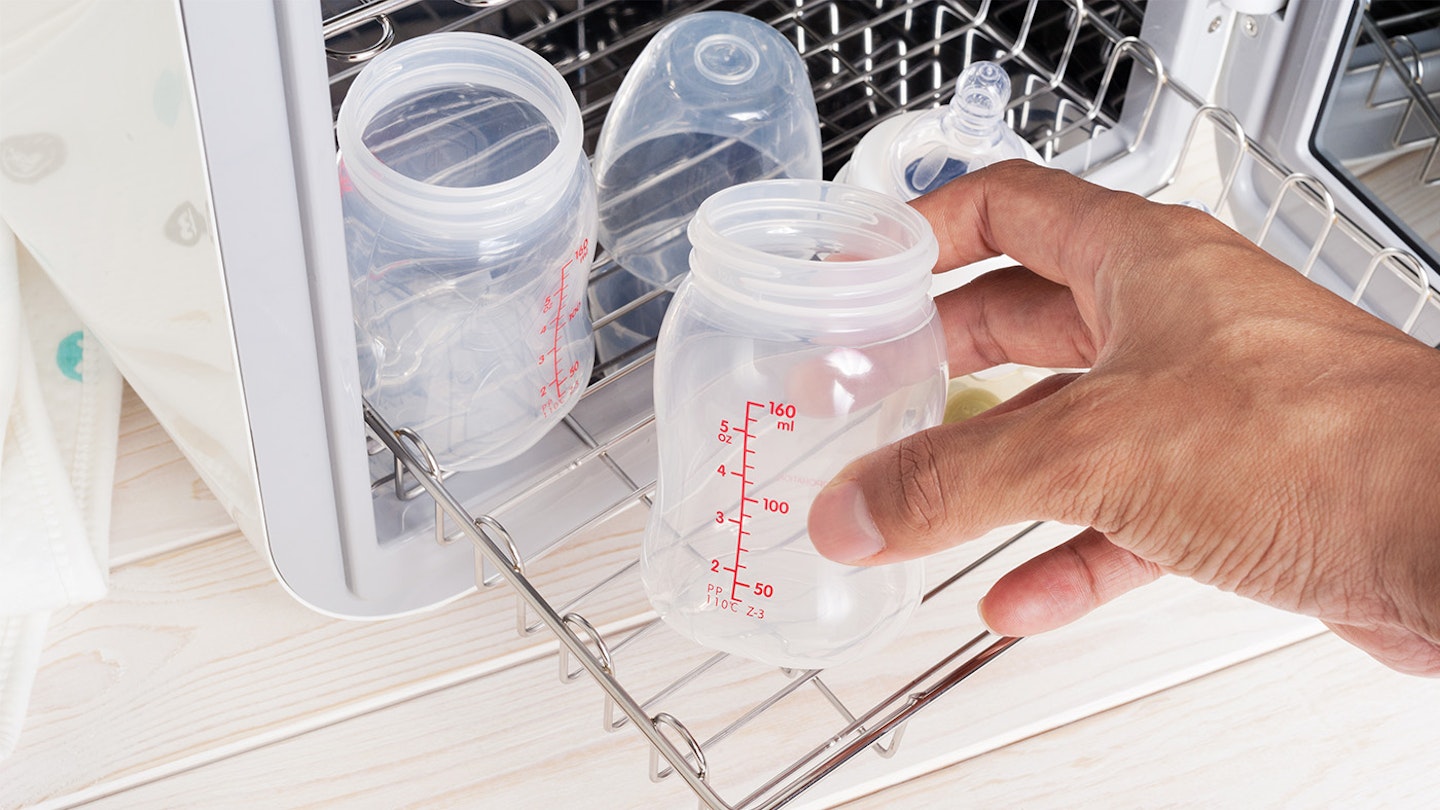Sterilising your baby's bottles and feeding equipment is just one of those parts of parenting that you quickly learn to just do on autopilot. Whether you use microwave steriliser bags or a UV steriliser, it's understandable you might be wondering "Can I stop sterilising bottles at 6 months?"
Why sterilising is important
Your young baby is still developing their immune system, so they're more susceptible to germs and bacteria than you are. Although it is not possible to protect your baby from all germs, it is possible to offer some protection by sterilising all of their feeding equipment to prevent anything nasty such as illness or diarrhoea from being passed onto them when they feed, usually as a result of lingering breastmilk or formula. If you don't have one already, we've got the low down on the best sterilisers to buy for babies.
Can I stop sterilising bottles at 6 months?
It is recommended by the NHS that you should sterilise for the first year of your little one's life. Once your baby is sitting and picking things up, a lot often ends up in your baby’s mouth, which may make you wonder why you are still sterilising when all sorts of unsterilised items end up in your baby’s mouth anyway. However, bugs created from milk can be particularly bad and just not worth the risk in the first year of your child's life when they are still building up their immune system.
Once your baby is a year old, they will have started to produce their own antibodies and be more resistant to harmful germs. It's still a good idea to carry on sterilising bottles, dummies and teats until your baby stops using them. Once you’re in the habit of sterilising, it can be just as easy to continue.
What should you sterilise?
The answer to what exactly you should sterilise is quite simple. Everything! You’ll know from washing your bottles, that there are so many parts to them, the lid, the bottle itself, the fiddly neck and the teat itself. Every part of the bottle should be sterilised, every time it is used.
If your baby uses a dummy, this should also be sterilised any time it is dropped or the teat is touched by unwashed hands.
Your little one may have started using a cup or beaker to drink water from six months old, but this doesn't need to be sterilised as it's a lot easier to clean it than a baby bottle so you can wash it well with warm soapy water or in your dishwasher.
